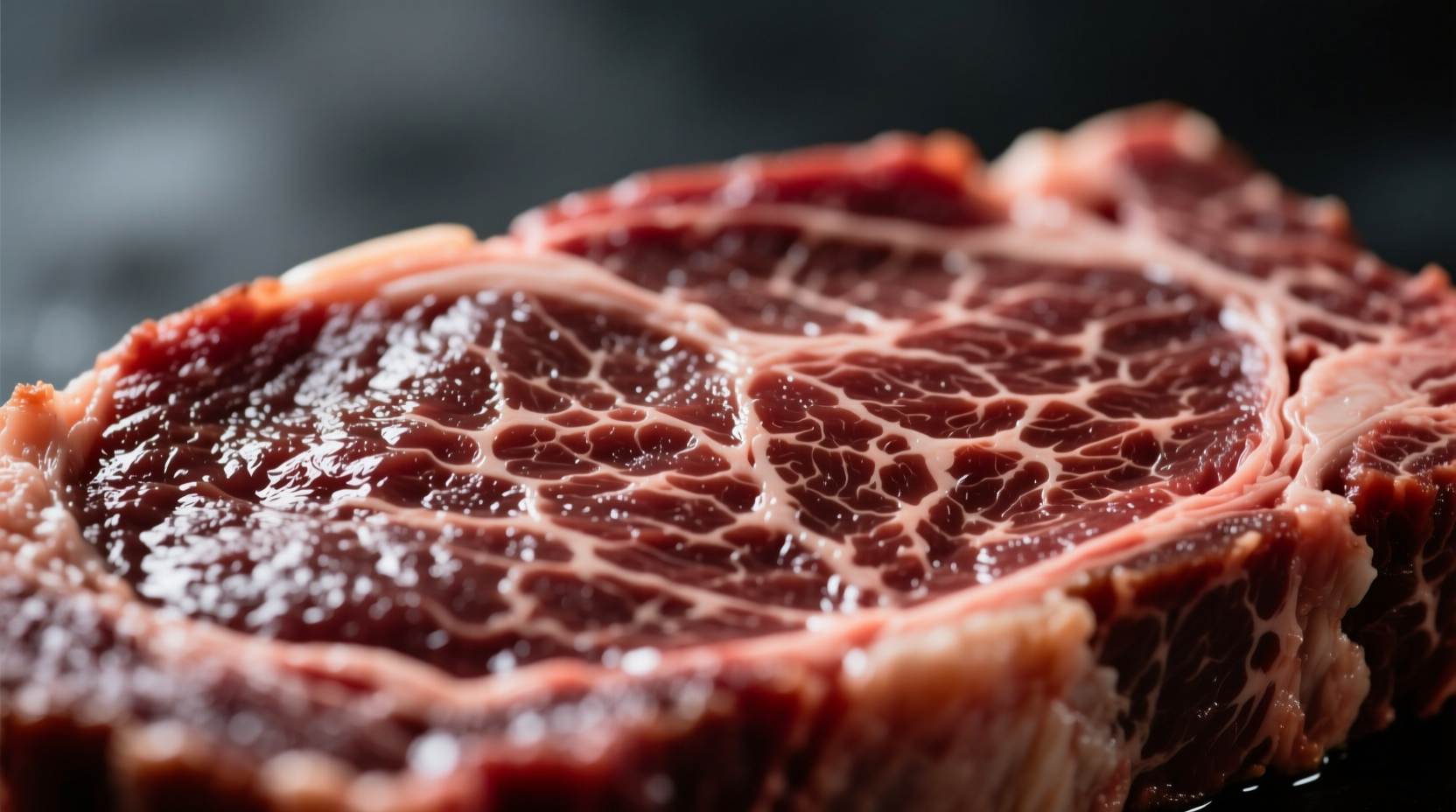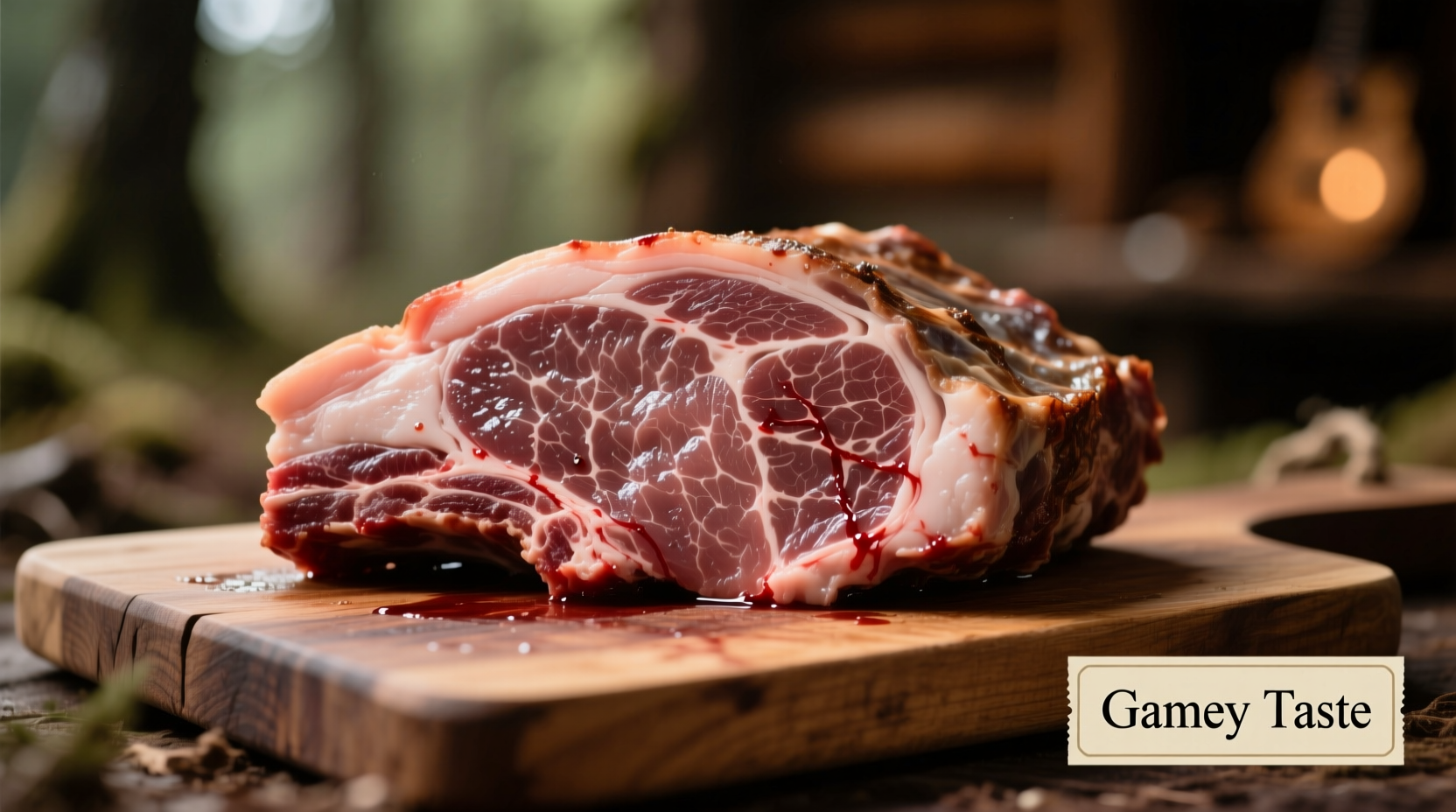If you've ever wondered what does gamey taste like when trying venison for the first time or encountered an unfamiliar flavor in lamb, you're not alone. This distinctive taste profile confuses many home cooks and food enthusiasts. Understanding gamey flavor helps you identify whether that unusual taste in your meal is a desirable characteristic or a sign of spoilage.
Breaking Down the Gamey Flavor Profile
Gamey taste isn't just "stronger meat flavor"—it's a specific sensory experience with identifiable components. Food scientists identify several key elements that create the what does gamey taste like phenomenon:
- Earthy undertones reminiscent of mushrooms or forest floors
- Metallic notes from higher iron content in wild game's blood
- Musky aroma similar to damp soil or wet animal fur
- Bitter aftertaste that lingers longer than conventional meats
- Grassy or herbal notes reflecting the animal's natural diet
According to research published in the Journal of Food Science, these flavor compounds develop because wild animals consume diverse natural diets and experience more physical activity than farm-raised counterparts, creating more complex muscle chemistry. The American Meat Science Association confirms that gamey flavors primarily come from branched-chain fatty acids that develop differently in wild versus domesticated animals.
Gamey vs. Regular Meat: How to Tell the Difference
| Characteristic | Gamey Meat | Regular Farm-Raised Meat |
|---|---|---|
| Flavor intensity | Strong, complex, lingering | Milder, more uniform |
| Aftertaste | Pronounced metallic/bitter notes | Clean finish |
| Aroma | Earthy, musky, sometimes ammonia-like | Neutral meaty scent |
| Texture | Firmer, leaner muscle fibers | Softer, more marbled |
This comparison helps answer the common question what does gamey taste like by providing concrete sensory references. The USDA Food Safety and Inspection Service notes that while gamey flavor is normal in wild game, it shouldn't be confused with spoilage indicators like sour odors or slimy texture.
Common Meats with Gamey Flavor Profiles
Not all meats develop gamey flavors equally. Understanding which proteins typically exhibit these characteristics helps set proper expectations:
Wild Game (Most Common)
- Deer/Venison - Often described as having the classic gamey profile
- Elk - Milder gamey notes with sweeter undertones
- Rabbit - Delicate gamey flavor that's less intense
- Wild boar - Stronger, more complex gamey notes than domestic pork
Farm-Raised Meats (Sometimes)
- Lamb - Especially from older animals or certain breeds
- Goat - Naturally gamey flavor that varies by diet
- Buffalo/Bison - Leaner than beef with distinctive earthy notes
As Antonio Rodriguez explains from his experience in professional kitchens: "The gamey taste in venison isn't a flaw—it's a flavor signature. When properly handled, that earthy, iron-rich profile creates depth that ordinary beef can't match. The key is understanding how to work with it rather than against it."

Is Gamey Flavor Good or Bad? Cultural Perspectives
Whether gamey taste is desirable depends heavily on cultural context and personal preference. Culinary traditions worldwide have different relationships with gamey flavors:
- Northern European cuisines often celebrate gamey flavors in dishes like venison stew
- Middle Eastern preparations use strong spices to complement rather than mask gamey notes
- Many Asian cultures prefer milder meat flavors, viewing pronounced gameiness as undesirable
- North American hunters frequently describe gamey flavor as "the taste of the wild"
A 2023 survey by the International Association of Culinary Professionals found that 68% of professional chefs consider moderate gamey notes desirable in wild game, while only 27% view them positively in farm-raised meats. This distinction matters when answering what does gamey taste like in different contexts.
How to Identify Gamey Taste: A Practical Guide
Follow these steps to accurately identify whether that unusual flavor is genuine gameiness:
- Examine appearance - Gamey meats often appear darker red with less marbling
- Check the aroma - Fresh gamey meat has earthy notes, not sour or ammonia smells
- Consider preparation - Improper aging can intensify gamey flavors
- Taste mindfully - Note if the flavor is complex and layered rather than simply "off"
- Assess aftertaste - True gamey flavor lingers with earthy/metallic notes
The Culinary Institute of America emphasizes that gamey flavor should never be accompanied by sourness, sliminess, or ammonia-like odors, which indicate spoilage rather than natural gameiness. This distinction is crucial for food safety when exploring what does gamey taste like.
Managing Gamey Flavors: Practical Cooking Tips
Whether you want to enhance or reduce gamey flavors, these professional techniques deliver results:
To Reduce Gamey Taste
- Soak in buttermilk - The lactic acid breaks down strong flavor compounds
- Marinate with acidic ingredients like vinegar or citrus for 12-24 hours
- Trim excess fat and silver skin where strong flavors concentrate
- Cook with aromatic vegetables like onions, carrots, and celery
To Enhance Desirable Gamey Notes
- Dry-age venison for 14-21 days to concentrate flavors
- Pair with earthy ingredients like mushrooms, red wine, or juniper berries
- Use low-and-slow cooking methods that develop complex flavors
- Finish with fresh herbs like rosemary or thyme to complement the profile
These approaches help answer the practical question behind what does gamey taste like by providing actionable solutions for home cooks.
When Gamey Means Spoiled: Critical Safety Information
It's essential to distinguish between natural gamey flavor and actual spoilage. The USDA provides clear guidelines:
- Natural gamey flavor remains consistent throughout the meat
- Gamey meat shouldn't have sour, rotten, or ammonia-like odors
- Texture should be firm, not slimy or sticky
- Color changes should be uniform, not patchy or gray-green
If your meat shows any spoilage indicators, discard it immediately regardless of whether you were expecting gamey flavors. The USDA Meat and Poultry Hotline (1-888-MPHotline) provides free guidance when you're uncertain about meat safety.
Final Thoughts on Gamey Flavor
Understanding what does gamey taste like transforms how you approach wild game and certain farm-raised meats. This distinctive flavor profile represents the animal's natural diet and lifestyle rather than a defect. With proper handling and cooking techniques, gamey flavors can elevate dishes with complexity that ordinary meats can't match. The key is recognizing when gamey taste is a desirable characteristic versus a sign of improper handling.











 浙公网安备
33010002000092号
浙公网安备
33010002000092号 浙B2-20120091-4
浙B2-20120091-4